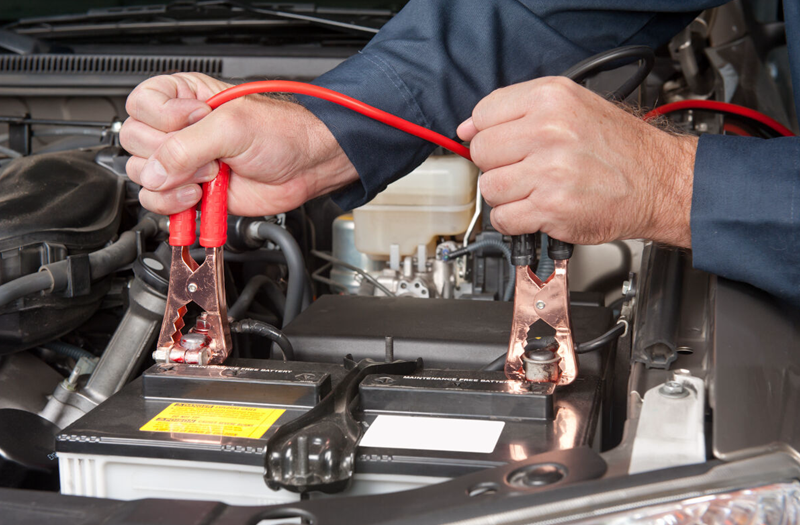Lithium-Ionen-Batterie: Antrieb für die Zukunft der Energiespeicherung
With the ever-growing demand for renewable energy sources, finding efficient and reliable ways to store energy has become a priority. One technology that has emerged as a frontrunner in energy storage is the lithium-ion battery. This small yet powerful device is revolutionizing the way we store and utilize energy. In this article, we will explore the intricacies of the lithium-ion battery and how it is shaping the future of energy storage.
To understand the significance of lithium-ion batteries, it is essential to comprehend their composition and working mechanism. A typical lithium-ion battery consists of several key components, including a cathode, an anode, a separator, and an electrolyte. During the charging process, lithium ions move from the cathode to the anode through the electrolyte, while the reverse happens during discharge. This movement of ions is facilitated by the flow of electrons, which generates the electrical energy that can be used to power various devices.
One of the primary reasons why lithium-ion batteries are gaining popularity is their high energy density. Compared to traditional lead-acid batteries, lithium-ion batteries can store significantly more energy in a smaller and lighter package. This advantage has made them the preferred choice for portable electronic devices, such as smartphones and laptops. Additionally, their high energy density also makes them ideal for electric vehicles, allowing for longer driving ranges and reduced charging times.
Another notable feature of lithium-ion batteries is their ability to maintain a consistent voltage throughout the discharge cycle. This means that devices powered by lithium-ion batteries will maintain a stable performance until the battery is nearly depleted. In contrast, traditional batteries experience a gradual decrease in voltage output as they discharge, resulting in a decline in the device\’s performance. The ability of lithium-ion batteries to deliver a constant voltage ensures a reliable power source for a wide range of applications.
Furthermore, lithium-ion batteries have a longer lifespan compared to other battery technologies. This is due to their ability to withstand a higher number of charge and discharge cycles without significant degradation. While the lifespan of a lithium-ion battery can vary depending on factors such as temperature and usage patterns, it generally outlasts other rechargeable batteries, making it a cost-effective solution in the long run.
The versatility of lithium-ion batteries extends beyond consumer electronics and electric vehicles. They are also being utilized for large-scale energy storage projects, which are crucial for integrating renewable energy sources into the electric grid. As the production of renewable energy, such as solar and wind, is intermittent, energy storage systems are needed to store excess energy for use during times of high demand or low generation. Lithium-ion batteries provide a reliable and efficient solution for these energy storage requirements, allowing for a more stable and sustainable grid.

However, like any technology, lithium-ion batteries are not without their challenges. One significant concern is their safety, as they are prone to overheating and, in rare cases, exploding or catching fire. Manufacturers are continuously working on improving the safety features of lithium-ion batteries, such as incorporating advanced thermal management systems and developing more stable electrolytes. These advancements aim to mitigate the risks associated with lithium-ion batteries and ensure their safe and widespread use.
In conclusion, the lithium-ion battery is a game-changer in the field of energy storage. Its high energy density, stable voltage output, long lifespan, and versatility make it the go-to choice for various applications, ranging from portable electronics to electric vehicles and large-scale energy storage. While there are still challenges to overcome, ongoing research and development efforts are paving the way for even more efficient and safer lithium-ion batteries. As we continue to transition towards a greener and more sustainable future, the lithium-ion battery will undoubtedly play a crucial role in powering the world.
-
 Wenn Sie nach einer zuverlässigen und langlebigen Batterielösung für Ihre Geräte suchen, sind Sie bei der 12V 100Ah LiFePO4-Batterie genau richtig. Diese fortschrittliche Batterietechnologie bietet zahlreiche Vorteile gegenüber herkömmlichen Blei-Säure-Batterien und ist somit die ideale Wahl für eine Vielzahl von Anwendungen. Einer der bedeutendsten Vorteile der LiFePO4-Batterie ist ihre überlegene Energiedichte....Weiterlesen
Wenn Sie nach einer zuverlässigen und langlebigen Batterielösung für Ihre Geräte suchen, sind Sie bei der 12V 100Ah LiFePO4-Batterie genau richtig. Diese fortschrittliche Batterietechnologie bietet zahlreiche Vorteile gegenüber herkömmlichen Blei-Säure-Batterien und ist somit die ideale Wahl für eine Vielzahl von Anwendungen. Einer der bedeutendsten Vorteile der LiFePO4-Batterie ist ihre überlegene Energiedichte....Weiterlesen -
 Power Your Adventures with a High-Capacity 12V LiFePO4 Battery - 100AhAre you tired of constantly worrying about running out of power during your outdoor adventures? Look no further than the high-capacity 12V LiFePO4 battery with 100Ah capacity. This battery is the perfect solution for powering your electronics and appliances during your outdoor adventures.One of the key benefits of the LiFePO4...Weiterlesen
Power Your Adventures with a High-Capacity 12V LiFePO4 Battery - 100AhAre you tired of constantly worrying about running out of power during your outdoor adventures? Look no further than the high-capacity 12V LiFePO4 battery with 100Ah capacity. This battery is the perfect solution for powering your electronics and appliances during your outdoor adventures.One of the key benefits of the LiFePO4...Weiterlesen -
 Lithium-ion battery, as one of the core technologies in the field of modern energy storage, has been attracting attention since its birth with its excellent performance and wide application prospects. This article will deeply explore the basic principles, structural composition and unique advantages of lithium-ion batteries in energy storage, and reveal the secrets of this technological product to you. 1....Weiterlesen
Lithium-ion battery, as one of the core technologies in the field of modern energy storage, has been attracting attention since its birth with its excellent performance and wide application prospects. This article will deeply explore the basic principles, structural composition and unique advantages of lithium-ion batteries in energy storage, and reveal the secrets of this technological product to you. 1....Weiterlesen -
 Die Vorteile der Verwendung von Lithiumbatterien in drahtlosen Tastaturen Kabellose Tastaturen erfreuen sich in den letzten Jahren aufgrund ihrer Bequemlichkeit und Flexibilität immer größerer Beliebtheit. Unabhängig davon, ob Sie eine kabellose Tastatur zum Arbeiten, Spielen oder für die allgemeine Computernutzung verwenden, ist eines sicher: Eine zuverlässige Stromquelle ist unerlässlich. Hier kommen Lithiumbatterien ins Spiel. In diesem Artikel...Weiterlesen
Die Vorteile der Verwendung von Lithiumbatterien in drahtlosen Tastaturen Kabellose Tastaturen erfreuen sich in den letzten Jahren aufgrund ihrer Bequemlichkeit und Flexibilität immer größerer Beliebtheit. Unabhängig davon, ob Sie eine kabellose Tastatur zum Arbeiten, Spielen oder für die allgemeine Computernutzung verwenden, ist eines sicher: Eine zuverlässige Stromquelle ist unerlässlich. Hier kommen Lithiumbatterien ins Spiel. In diesem Artikel...Weiterlesen -
 Lithium-ion batteries have taken the world by storm, and for good reason. They are highly efficient, have a long lifespan, and can pack a lot of power in a small package. One of the most popular types of lithium-ion batteries is the LiFePO4 battery. This type of battery is incredibly popular in a variety of applications because of its long...Weiterlesen
Lithium-ion batteries have taken the world by storm, and for good reason. They are highly efficient, have a long lifespan, and can pack a lot of power in a small package. One of the most popular types of lithium-ion batteries is the LiFePO4 battery. This type of battery is incredibly popular in a variety of applications because of its long...Weiterlesen -
 Replacing a jump starter battery is a relatively simple process that can be accomplished with a few basic tools and the right replacement battery. In this guide, we will walk through the steps required to replace a jump starter battery, including identifying the correct replacement battery, removing the old battery, and installing the new one. Step 1: Identify the...Weiterlesen
Replacing a jump starter battery is a relatively simple process that can be accomplished with a few basic tools and the right replacement battery. In this guide, we will walk through the steps required to replace a jump starter battery, including identifying the correct replacement battery, removing the old battery, and installing the new one. Step 1: Identify the...Weiterlesen -
 In recent years, battery technology has rapidly advanced, leading to the industrialization of battery production and storage. This transformation is poised to revolutionize the way we generate, store, and use energy. As the world strives to reduce carbon emissions and transition to renewable energy sources, battery technology is playing a critical role in enabling this transformation. The industrialization of...Weiterlesen
In recent years, battery technology has rapidly advanced, leading to the industrialization of battery production and storage. This transformation is poised to revolutionize the way we generate, store, and use energy. As the world strives to reduce carbon emissions and transition to renewable energy sources, battery technology is playing a critical role in enabling this transformation. The industrialization of...Weiterlesen

